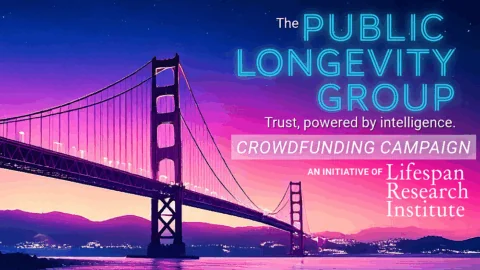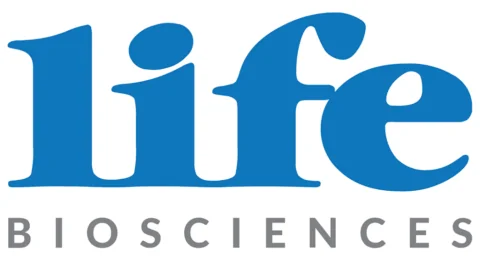Life Biosciences Incorporated

Organization Description
Life Biosciences (LB) was originally an investment-incubator model that formed or acquired subsidiary longevity therapeutics startup companies and brings them together into shared lab space and artificial intelligence capabilities, creating a discovery, development, and commercialization ecosystem dedicated to advancing treatments for age-related diseases. “Our thesis was to have a land grab of the best people before we let ourselves be known and have competition,” said one official in 2018. “We have achieved that now.”
Founded in 2017 by Dr. David Sinclair and WeWork founder Adam Neumann, the company recruited Dr. Mehmood Khan as CEO; he transitioned to Executive Chairman rougly contemporaneously with his current role at Hevolution Foundation.
The company is headquartered in Boston, MA and has pursued therapies across multiple molecular pathways that target each of the hallmarks of aging. At one time, LB had at least six startup companies under its aegis. Today, most of those companies — including Anna Maria Cuervo’s Selphagy Therapeutics (loss of proteostasis), Manuel Serrano’s Senolytic Therapeutics (senescent cells), and Uncoupler Biosciences (mitochondrial dysfunction) — seem to have separated from LB or gone defunct. Its central focus today appears to be cellular reprogramming. They aim to go to market with novel treatments for age-related diseases and ultimately extend healthy lifespan.
In January 2022, the company announced that it had completed an $82 million Series C financing round led by Alpha Wave Ventures. At that point, LB had cumulatively raised over $158 million.
ER-100
Epigenetic alterations are one of the reasons we age. Simply put, our cells become functionally older and dysfunctional based on aberrant changes in the control of the expression of our genes. It has been shown in a number of experiments that this aged gene expression can be reversed and in doing so, cells, tissues, and aging mice become functionally younger in several respects.
ER-100 is an inducible transgene that comprises three of the four Yamanaka factors (OCT4, SOX2, and KLF4 — collectively (OSK)). The transgene is inducible by doxycycline and delivered via an adeno-associated virus (AAV). Transient activation of the transgene partially reprograms cells into a more youthful state while still retaining their original cellular identity. In mice, ocular injection and activation of this construct enhanced nerve regeneration after optic nerve injury, restored vision in a glaucoma mouse model, significantly improved vision in aging mice. In 2023, LB tested ER-100 in nonhuman primates subjected to laser injury — a model of non-arteritic anterior ischemic optic neuropathy (NAION), which is the equivalent of a stroke in the fine blood vessels of the retina of the eye that leads to a sudden but painless loss of vision. Two weeks of transgene activation led to improvement in visual function and nerve axon survival in this model. In mice, no negative effects were observed 15 months after receiving the OSK treatment through the bloodstream.
In March 2025, recently-appointed COO Michael Ringel stated that the company anticipates initiating a trial of ER-100 to treat NAION by the end of the year. This is also reflected in the company’s pipeline page, which as of August 2025 also indicates an interest in testing it against primary open angle glaucoma (POAG) and discovery-phase work with it for an undisclosed ocular condition.
Undisclosed Candidates
As of August 2025, LB’s pipeline page lists lists an undisclosed candidate delivered by lipid nanoparticle, a second undisclosed candidate delivered via AAV, and a third in the form of a small molecule, all in the discovery phase and with no stated indication.
Selphagy Therapeutics (CMA-100)
Cofounded by Dr. Ana Maria Cuervo and Dr. Evris Gavathiotis, Selphagy was formerly listed as part of LB’s roster and researched ways to restore chaperone-mediated autophagy (CMA) to aging cells as an approach to combat neurodegenerative disease. CMA is a process where cells target specific unwanted proteins for breakdown, unlike the more general (macro)autophagy pathway. As we age, CMA activity decreases because a key protein called LAMP2A becomes unstable, causing buildup of insoluble protein clumps that disrupt cell function.
In 2021, Drs. Cuervo and Gavathiotis of Selphagy reported that CMA-100 was an orally available, blood-brain barrier-crossing small molecule inhibitor of the retinoic acid receptor alpha (RARalpha), which is a negative regulatory element for CMA. In vitro, CMA-100 improves the removal of damaged or misfolded proteins that accumulate with aging and lead to diseases such as Alzheimer’s (AD), Parkinson’s, frontotemporal dementia (FTD), and other neurodegenerative aging diseases. In vivo, it improved cognitive function and reduced disease-causing aggregate accumulation and microglial activation in mouse models of AD and FTD, even when initiated after cognitive decline was evident.
Dr. Cuervo’s prior research had implicated impaired CMA in retinal diseases, and as late as 2024, LB’s portfolio page listed a CMA inducer (seemingly CMA100) in discovery phase for neurodegenerative disease and a(nother) CMA inducer (seemingly CMA-200) in discovery for an opthalmic indication. However, Selphagy no longer appears on the LB website, no CMA activators appear in its pipeline, and searches for the company post-2022 produce no valid results.
Continuum Biosciences (MU-100, MU-200)
Launched in 2017 and formerly listed as part of LB’s roster, Continuum Biosciences was working on mitochondrial uncoupler compounds as a potential treatment for obesity and non-alcoholic/metabolic-associated steatohepatitis (NASH/MASH). Mitochondrial uncouplers are small molecules that cause the mitochondria to dissipate the chemical “reservoir” that they normally build up for the purposes of generating energy, thus burning up more energy from food while producing no more cellular energy. Past uncoupling agents have been effective for weight loss, but have caused dangerous rises in body temperature and other side-effects. The researchers behind Continuum discovered a mitochondrial uncoupler they named BAM15 that decreases body fat, insulin resistance, oxidative stress, and inflammation in mice without reducing food intake or muscle mass or increasing body temperature.
MU-100 and MU-200 (presumably BAM15 or derivatives) were listed on LB’s pipeline chart as late as 2023, but neither the company nor mitochondrial uncouplers are in evidence on the website today. Meanwhile, recent publications by Continuum scientific cofounders Drs. Kyle Hoehn and Webster Santos explore other uncoupling molecules based on different chemisty and disclose affiliation with “Uncoupler Biosciences,” initially in parallel with affiliation with LB and more recently without.
Senolytic Therapeutics
Manuel Serrano’s Senolytic Therapeutics (STX) developed proprietary strategies to destroy the senescent cells that generate the senescence-associated secretory phenotype (SASP) and harm tissues, thus treating one of the hallmarks of aging and associated age-related diseases.
At its founding, STX had three core programs. One, with lead senolytic compound SEN01, was intended to target certain cancers, as well as fibrotic diseases — specifically idiopathic pulmonary fibrosis (IPF), a terrible disease of aging characterized by lung scarring and a high burden of senescent cells. A second program, in the discovery phase, was focused on enhancing or reinforcing the immune clearance of senescent cells, with cancer as the intended indication. And a third “discovery platform to design novel molecules and tested in other anti-aging indications in-house or in collaboration with academic institutions.”
The company was cofounded by Dr. Miguel Serrano and Dr. Marc Ramis Castelltort, had offices in Barcelona, Spain, and Boston, Massachusetts, and was a member of the LB group,. However, its website has been defunct since late 2021, STX is not listed on LB’s website as of August 2025, and there are no senolytic compounds in LB’s current pipeline chart. Its intellectual property was outlicensed to RejuverSen in 2021.
Jumpstart Fertility
Historically, Jumpstart Fertility was listed as a company in LB’s roster; as of August 2025, neither company’s website appears to mention such an affiliation.
Animal Bioscience
Historically, Animal Bioscience — a company cofounced by Dr. Sinclair of LB that develops dietary supplements intended for use as geroprotectants — was s listed as a company in LB’s roster, and Animal Bioscience listed this affiliation on its own website; as of August 2025, neither company’s website appears to mention such an affiliation, although Dr. Sinclair is listed as a cofounder and his affiliation with LB is disclosed. Animal Bioscience now sells a “healthy aging” dietary supplement for dogs of unclear composition: it is said to contain an NAD+ booster and a senolytic, but the molecular identities are not disclosed, though the NAD+ booster is stated not to be nicotinamide mononucleotide (NMN).
The company conducted a veterinary clinical trial with this product, which showed no statistically and clinically significant differences between verum and placebo. None the less, Dr. Sinclair stated initially that it had been “proven to reverse aging in dogs” (later corrected to “proven to reverse the effects of aging in dogs.”) Dr. Matt Kaeberlein of the Dog Aging Project was highly critical of the trial, the press release, and of Dr. Sinclair’s statements, and resigned from a geroscience organization headed by Sinclair; he was followed by several others and by Sinclair stepping down as President. Kaeberlein subsequently issued a detailed critique of the dog trial.




